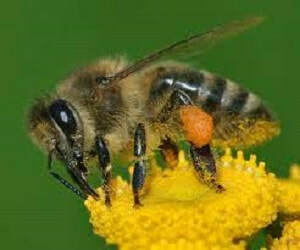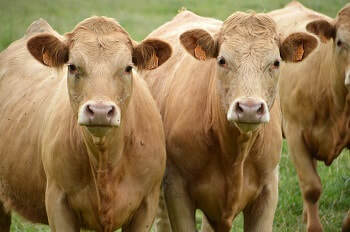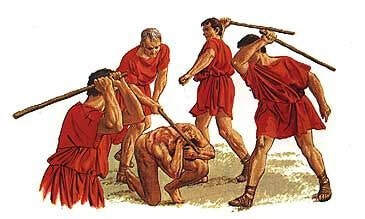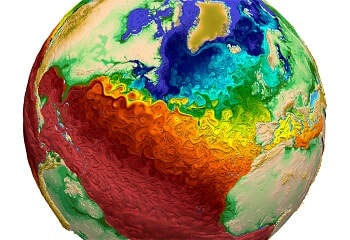David Tickner's Blog, page 26
December 14, 2021
Picnic
 When you think of picnics, do woodpeckers or spears come to mind!? These words are related to the origins of the word picnic.
When you think of picnics, do woodpeckers or spears come to mind!? These words are related to the origins of the word picnic.The word picnic first appears in 1748 but was rarely used until the 1800s. Originally, a picnic was a fashionable English social affair held either indoors or outdoors. Every participant contributed something to the picnic table similar to a buffet or potluck event.
The word picnic comes from French piquenique (1690s), from piquer (to peck, to pick) and a Germanic term nique (a worthless thing). A picnic, in this context, was first about nibbling or snacking rather than a formal meal. A picnic was about socializing, not just about eating. Forms of piquenique or picnic also show up in 18th century German, Danish, and Swedish.
During the 19th century, the word picnic came to mean a pleasure party in which the members carry provisions on an excursion to some place in the country. Picnic basket is from 1857. Picnic table; i.e., a folding table for outdoor dining, is from 1858. The sense of a picnic as something easy is from 1886.
What about those woodpeckers and spears?
French piquer (to pick, to puncture, to pierce), from Old French pic (a sharp point or spike), is the source of French pique (from the 1510s, a spear; known in English as pike). Other related European words at that time for spear include Spanish pica, Italian pica, Provencal piqua, all possibly from Germanic or Celtic sources.
Another suggestion for the origin of French piquer is Latin piccare (to prick, to pierce) and Latin picus (woodpecker). The scientific (or Latin) name for the bird family of which woodpeckers are members is Picidae.
‘To go on a picnic’ is from 1842.
I hope all this has piqued your interest in picnics… and word origins!
Reference: Online Etymological Dictionary, https://www.etymonline.com/
Published on December 14, 2021 09:24
December 10, 2021
Weird
 Have you seen the TV commercials for eggs in which someone is eating a snack made with eggs? “That’s weird,” says one person watching the other eat.
Have you seen the TV commercials for eggs in which someone is eating a snack made with eggs? “That’s weird,” says one person watching the other eat.“What’s weird?” replies the person eating.
“Eating eggs for a snack…”
“That’s not weird. You’re weird for thinking it’s weird.”
Do you ever encounter something that seems strange, eerie, creepy, mysterious, unnatural, peculiar, uncanny—you know, something that seems weird? Have you ever called someone a ‘weirdo’? Have you ever said that you were ‘weirded out’ by something?
Weird comes from an ancient Proto-Indo-European (PIE) word wer that simply means to turn or bend or become. What’s weird about that?
We use phrases such as ‘as the world turns’ or ‘it’s your turn’ or ‘do someone a good turn’ or ‘let’s see how things turn out’. Again, what’s weird about that?
The word weird comes to us from Old English word wyrd (meaning ‘that which comes’) which in turn has its origins in PIE wer and related Germanic and Norse words meaning fate, chance, and destiny. The three goddesses of fate in Germanic and Norse mythology, called the Norns, were also called the ‘weird sisters’ or the ‘sisters of fate’. They represent the past, present, and future.
In medieval times, the word weird was used to describe someone or something that had the power to control fate. There was still an uncanny or mysterious sense that ancient mythic gods and goddesses controlled human fate.
Even now we still carry a mysterious sense of things being ‘predestined’ or ‘written in the stars’ or ‘meant to be’. Have you read a horoscope lately?! Even now, something strange or unexpected happens and we exclaim, “Boy, that was weird!” And, how often have you heard someone say that something was or is ‘weird and wonderful’?
Given that a person’s fate includes both positive and negative elements, how did the word weird get to have such a dark side? This appears to have happened relatively recently. For example, in some popular 19th century productions of Macbeth the three sisters were portrayed as malevolent and frightening witches.
Now when we say we have a ‘weird feeling’ about something, we have an ominous sense of foreboding. Somehow the three sisters have got something in for us. Watch out.
Isn’t it weird how the meaning and use of the word weird has changed over the years?
Anyway, time to go have an egg snack.
Image: https://skjalden.com/norns/
Reference: Online Etymological Dictionary, https://www.etymonline.com/
Published on December 10, 2021 10:06
December 6, 2021
Chuff, Chuffed
 Do you watch movies and TV programs made in Britain? You may have heard characters saying things like, “That worked out really well. I’m so chuffed!” Or, “She’ll be so chuffed when she sees this…”
Do you watch movies and TV programs made in Britain? You may have heard characters saying things like, “That worked out really well. I’m so chuffed!” Or, “She’ll be so chuffed when she sees this…”The origins of the word chuff are unknown. It is an example of a word whose current meaning is quite different from its original meaning. When chuff first appeared in the mid-1400s, it meant a coarse, fat-headed, blunt clown. In the 1500s, chuff meant something swollen with fat. As recently as the 1830s, chuff meant displeased or gruff.
However, for some reason, by the 1860s chuff had more generally come to mean pleased or happy. Chuffed, meaning pleased, is from 1957.
In contrast, in American English, chuff seems to have retained its original meaning; e.g., Merriam-Webster defines chuff as someone who is a boor or churl. Merriam-Webster also defines chuff as the sound of noisy engine exhaust or noisy exhalations. These latter meanings of the word are from the early 20th century.
In brief, chuff is a word whose meaning depends on the context in which it is being used and on which side of the Atlantic it is being used.
Reference: Online Etymological Dictionary, https://www.etymonline.com/
David’s Wordshop Blog: http://www.davidtickner.ca/blog
www.davidtickner.ca
Published on December 06, 2021 15:32
December 2, 2021
Bee
 The word bee, part of the English language since before the 12th century, has its origins in Proto-Indo-European (PIE) bhei (bee) and Proto-Germanic bion, the source of Old Norse by, Old High German bia, Middle Dutch bie, and Old English beo.
The word bee, part of the English language since before the 12th century, has its origins in Proto-Indo-European (PIE) bhei (bee) and Proto-Germanic bion, the source of Old Norse by, Old High German bia, Middle Dutch bie, and Old English beo.The word bee is an etymon; i.e., a word that has not changed that much since its origins thousands of years ago.
There are several metaphors that include bee; e.g., ‘busy as a bee’ (1530s), ‘to have a bee in one’s bonnet’ (1553), the ‘birds and the bees’ (late 19th century), and ‘to make a bee line’ (date unknown).
However, these metaphors are not to be confused with other expressions which do not come from bee but are from Middle English bene (good, well) and boon (blessing, benefit, favor); e.g., a ‘work bee’ (1769, a meeting of neighbours to unite their labor for one of their number), a ‘spelling bee’ (1809), a ‘raising bee’ (1814, related to building construction), ‘quilting bee’ from 1824, and, incredulously, extraordinarily, sadly, the phrase ‘hanging bee’ (sometimes called a ‘lynching picnic’) from the 19th century United States.
Reference: Online Etymological Dictionary, https://www.etymonline.com/
Published on December 02, 2021 11:18
November 29, 2021
Vaccine
 The Merriam-Webster Dictionary has just named ‘Vaccine’ as its Word of the Year for 2021.
The Merriam-Webster Dictionary has just named ‘Vaccine’ as its Word of the Year for 2021."This was a word that was extremely high in our data every single day in 2021," Peter Sokolowski, the dictionary's editor-at-large, told The Associated Press ahead of Monday's announcement.
"It really represents two different stories. One is the science story, which is this remarkable speed with which the vaccines were developed. But there's also the debates regarding policy, politics, and political affiliation. It's one word that carries these two huge stories."
The words vaccination and vaccine come from Latin vaccinus (from cows) and from vacca (cow), a word of unknown origin, perhaps from Sanskrit vasa.
The word vaccination was coined in 1798 by British physician Edward Jenner (1749 – 1823) to name the technique of preventing smallpox by injecting people with the similar but milder cowpox virus.
The word vaccine (material used in a vaccination) is from 1846.
The Oxford English Dictionary chose ‘vax’ as its Word of the Year for 2021. Last year, Merriam-Webster’s Word of the Year was ‘pandemic’.
Reference: Online Etymological Dictionary, https://www.etymonline.com/
Published on November 29, 2021 21:54
November 28, 2021
Decimation
 What images come to mind when you hear the words decimate and decimation? What feelings arise?
What images come to mind when you hear the words decimate and decimation? What feelings arise?Decimate has its origins in ancient Proto-Indo-European (PIE) dekm and Latin decem, both meaning ten. Latin decem is the origin of decimal and decade. In the Roman calendar, in which the year began in March, December was the tenth month.
So, why does the number ten have such connotations of death and destruction?
Latin decem is also the origin of decimatus meaning the removal or destruction of one-tenth. In the Roman army, the punishment for extreme cases of cowardice, desertion, insubordination, or mutiny was the killing of every tenth man in a squad or battalion. These men would be chosen by lots and then stoned, stabbed, or beaten to death with ax handles by their comrades.
Imagine for a moment having to kill one of your comrades.
Even today, the images associated decimation carry far more emotion and feeling than the original word which simply meant ‘one in ten’. It is no wonder that the strong feelings associated with the word decimatus continue to haunt us. When we hear the word decimation, we can’t help but think of massive destruction or even annihilation.
Reference: Online Etymological Dictionary, https://www.etymonline.com/
Published on November 28, 2021 11:56
November 25, 2021
Hybrid
 Have you given any thought to buying a hybrid vehicle? Would it surprise you to learn that the word hybrid originally meant the offspring of a wild boar and a domestic sow? Hybrid is another word for piglet!
Have you given any thought to buying a hybrid vehicle? Would it surprise you to learn that the word hybrid originally meant the offspring of a wild boar and a domestic sow? Hybrid is another word for piglet!In its origins, the word hybrid comes from Latin hybrida (mongrel; specifically a mongrel pig). Before this, the origins are unknown. The word first appears in English around 1600 meaning the offspring of plants or animals of different varieties or species. The word was rarely used until the 1850s.
The use of hybrid to mean an engine powered by both gasoline and electricity is from 2002.
Some suggest that Latin hybrida is related to Greek hybris (insolence and arrogance toward the gods; wanton violence, outrage). By the time hybris arrived in English in 1884 as hubris, the word had come to mean exaggerated pride or self-confidence. Someone who is full of hubris is tempting fate or the gods and is likely headed for trouble.
Reference: Online Etymological Dictionary, https://www.etymonline.com/
Thomas, L. (1979). The medusa and the snail: More notes of a biology watcher. New York: Viking, 57- 64.
Published on November 25, 2021 11:31
November 22, 2021
Environment
 The word environment has its origins in words and phrases meaning to be present in that which turns around you or which surrounds you.
The word environment has its origins in words and phrases meaning to be present in that which turns around you or which surrounds you.The root of the word environment is Old French viron (a circle, circuit) and virer (to turn; virer is also related to the 12th century Old French verb ‘to veer’). The 14th century Old French verb environer meant to surround, to enclose, encircle. In the 1660s, the Old French word environs (now also an English word) meant the outskirts or surroundings of a place; e.g., the environs of a village or neighbourhood.
Around 1600, the word environment appeared in English. Interestingly, at that time, the environment was not something ‘out there’ but rather was (or is) the state of being that you experience when being surrounded by something; i.e., the state of being environed.
By 1827, the word environment had come to mean the circumstances, objects, or conditions surrounding a person or thing. The adjective environmental is from 1887. The word environmentalism is from 1917. The use of the word environment in the specialized ecology sense is first recorded in 1956.
The etymology suggests that people are both surrounded by the environment and are a part of the environment (i.e., the environment is not just the wilderness out there somewhere separate or distant from us). Each of us is part of the environment and the environment is part of each of us. The environment is not just the broader geography that surrounds us but is also the particular street where we live.
Reference: Online Etymological Dictionary, https://www.etymonline.com/
Published on November 22, 2021 16:27
November 18, 2021
Climate
 Have you noticed the word climate in the news lately?! The Oxford English Dictionary has just released an update on the word climate and on newly created phrases related to climate.
Have you noticed the word climate in the news lately?! The Oxford English Dictionary has just released an update on the word climate and on newly created phrases related to climate.As described in a recent article in the online CBC News, “…the Oxford English Dictionary has released an update on the language of climate change and environmental sustainability.” In particular, the article states that “Because climate can be a modifier, the entry for climate has been expanded to include, in alphabetical order, climate action, climate catastrophe, climate crisis, climate denial, climate denialism, climate denier, climate emergency, climate justice, climate refugee, climate sceptic, and climate strike.”
The CBC article also describes the Maori word kaitiakitanga meaning "Guardianship or management, especially of the natural resources of a place or area; environmental stewardship considered as a duty and responsibility of the inhabitants of an area."
The word climate has its origins in Proto-Indo-European (PIE) klei (to lean) 1 and Greek klima (region, zone; an inclination or slope; the slope of the earth from equator to pole). From these sources came Latin clima (region, slope of the earth), Old French climat (region, part of the earth), and in the late 14th century the word climate came to English meaning the horizontal zones of the earth’s surface measured by lines parallel to the equator.
How did all this come to be related to what we now know as climate (and weather, a word which has its origins in words related to blowing and to wind)?
By the late 14th century, the word climate was also being used not only to differentiate zones of the earth but to differentiate these zones by the weather associated with the zone or region; e.g., a ‘northern’ climate or zone was a ‘cold’ climate or zone.
The use of climate as primarily related to the weather rather than the region is from around 1600. Climatology (the study of climates) is from 1803. Microclimate is from 1918. The term ‘climate change’ is from 1983.
1 Other words related to PIE klei include clemency, client, climax, clinic, clitoris, decline, incline, lid, proclivity, recline, and others.
Reference: Online Etymological Dictionary, https://www.etymonline.com/
Dictionary update shows how changing climate changes everything, including language:
https://www.cbc.ca/news/opinion/opinion-cop26-climate-change-oxford-english-dictionary-1.6242580
Published on November 18, 2021 08:10
November 16, 2021
Paraphernalia
 What’s the first thing that comes to mind when you hear the word paraphernalia? Drug paraphernalia? Probably not bridal paraphernalia.
What’s the first thing that comes to mind when you hear the word paraphernalia? Drug paraphernalia? Probably not bridal paraphernalia.The word paraphernalia has its origins in Greek pherne (dowry) and pherein (to carry); i.e., to carry a dowry: in particular, to carry a dowry to a newly married bride’s home.
Among other things, Greek para means beside. Greek para (beside) + pherna (dowry) creates Greek parapherna and, later, Latin parapherna (in Roman law, a woman’s property beside or, in addition to, her dowry).
The word paraphernalia came to English in the 1650s with a meaning unchanged from ancient times; i.e., paraphernalia was a woman’s personal property which she brought to a marriage along with her dowry. Wikipedia describes such paraphernalia: “A husband could not sell, appropriate, or convey good title to his wife's assets considered paraphernalia without her separate consent. They did not become a part of her husband's estate upon his death, and could be conveyed by a married woman's will.” This view of paraphernalia has been rendered obsolete by modern changes to the law. (https://en.wikipedia.org/wiki/Paraphernalia).
By the 1730s, paraphernalia also meant the equipment or apparatus or miscellaneous articles related to a particular occupation or task. Paraphernalia has evolved to mean ‘odds and ends’.
Reference: Online Etymological Dictionary, https://www.etymonline.com/
Photo: Nicolas Huk
Published on November 16, 2021 21:07



